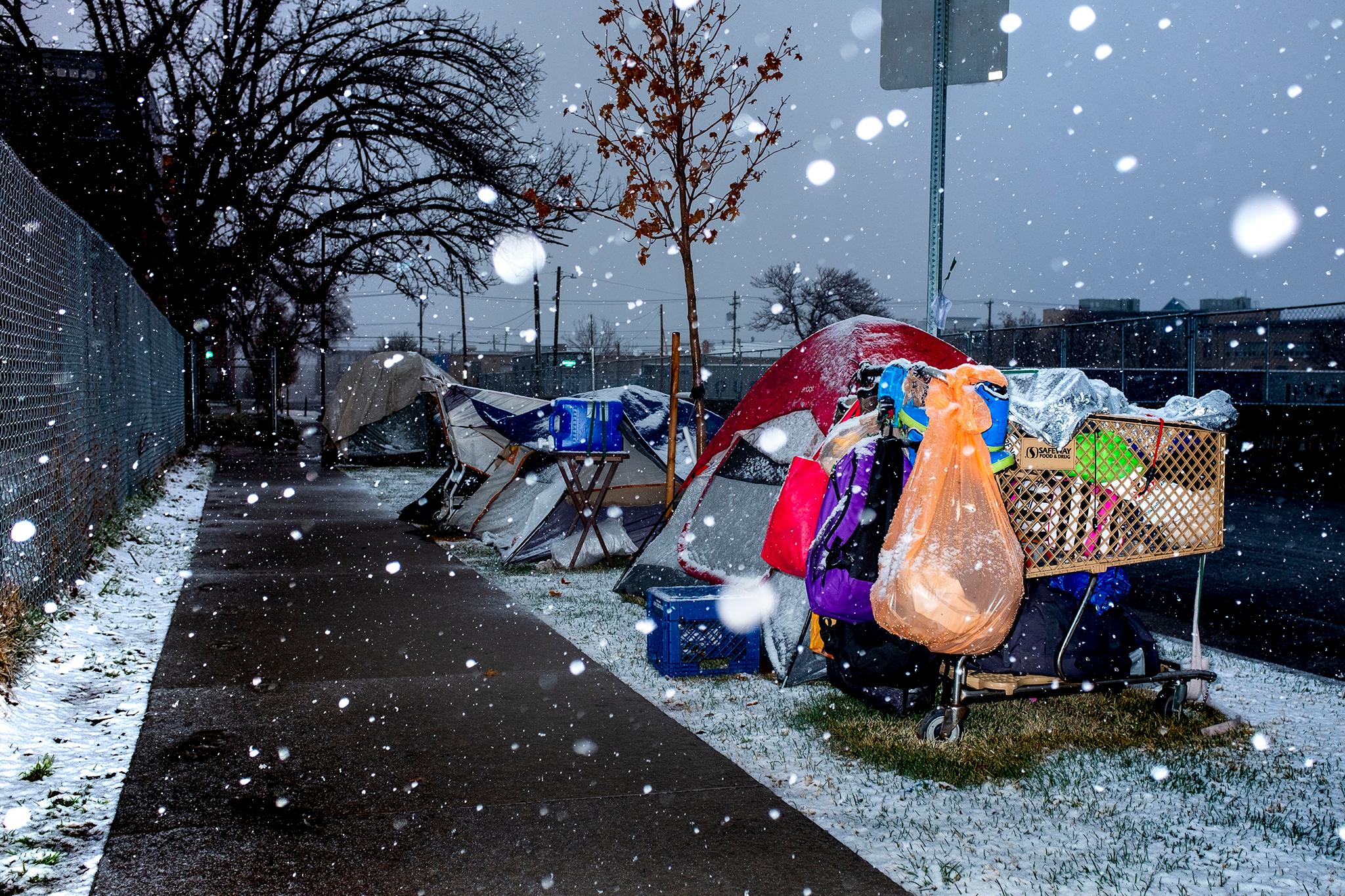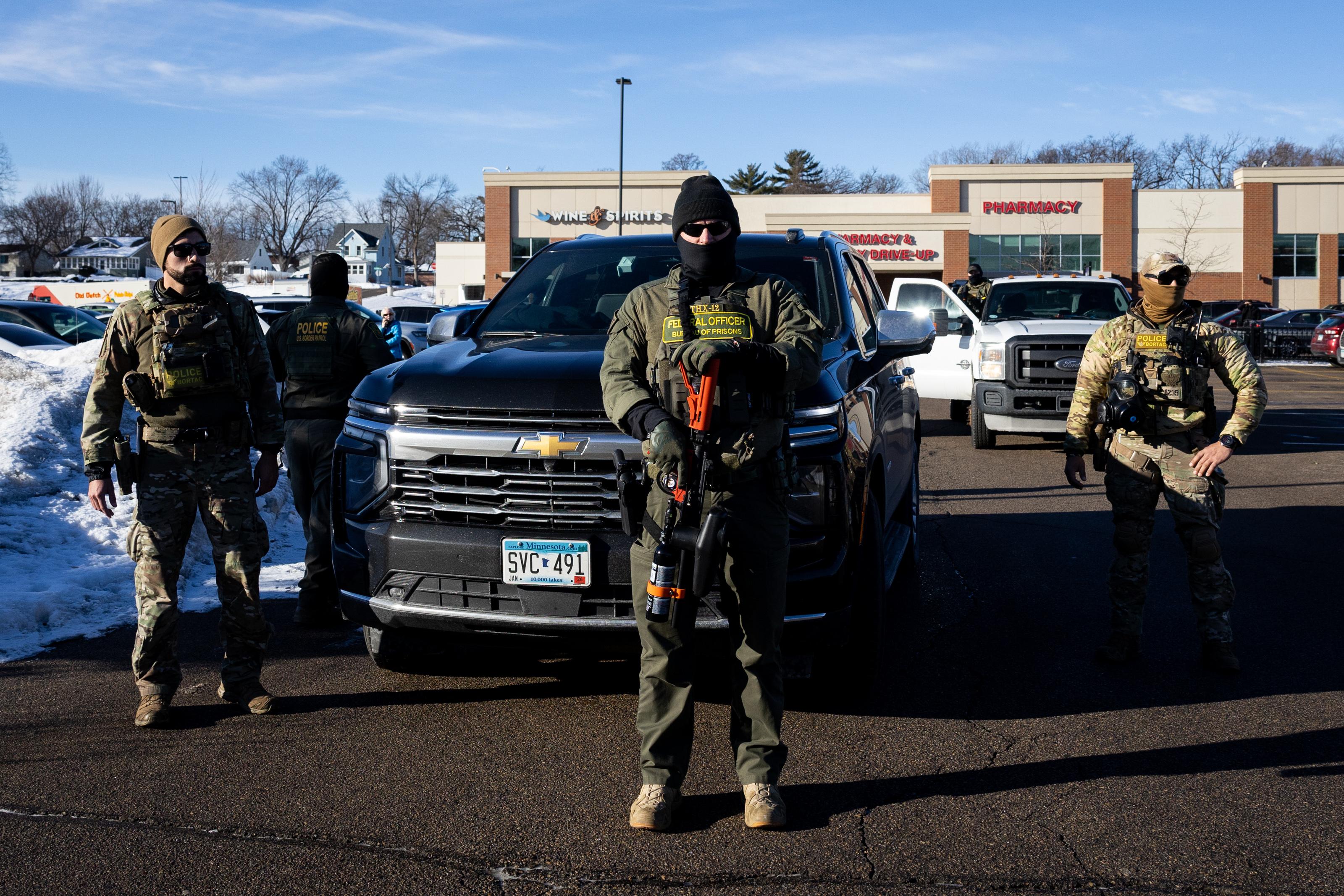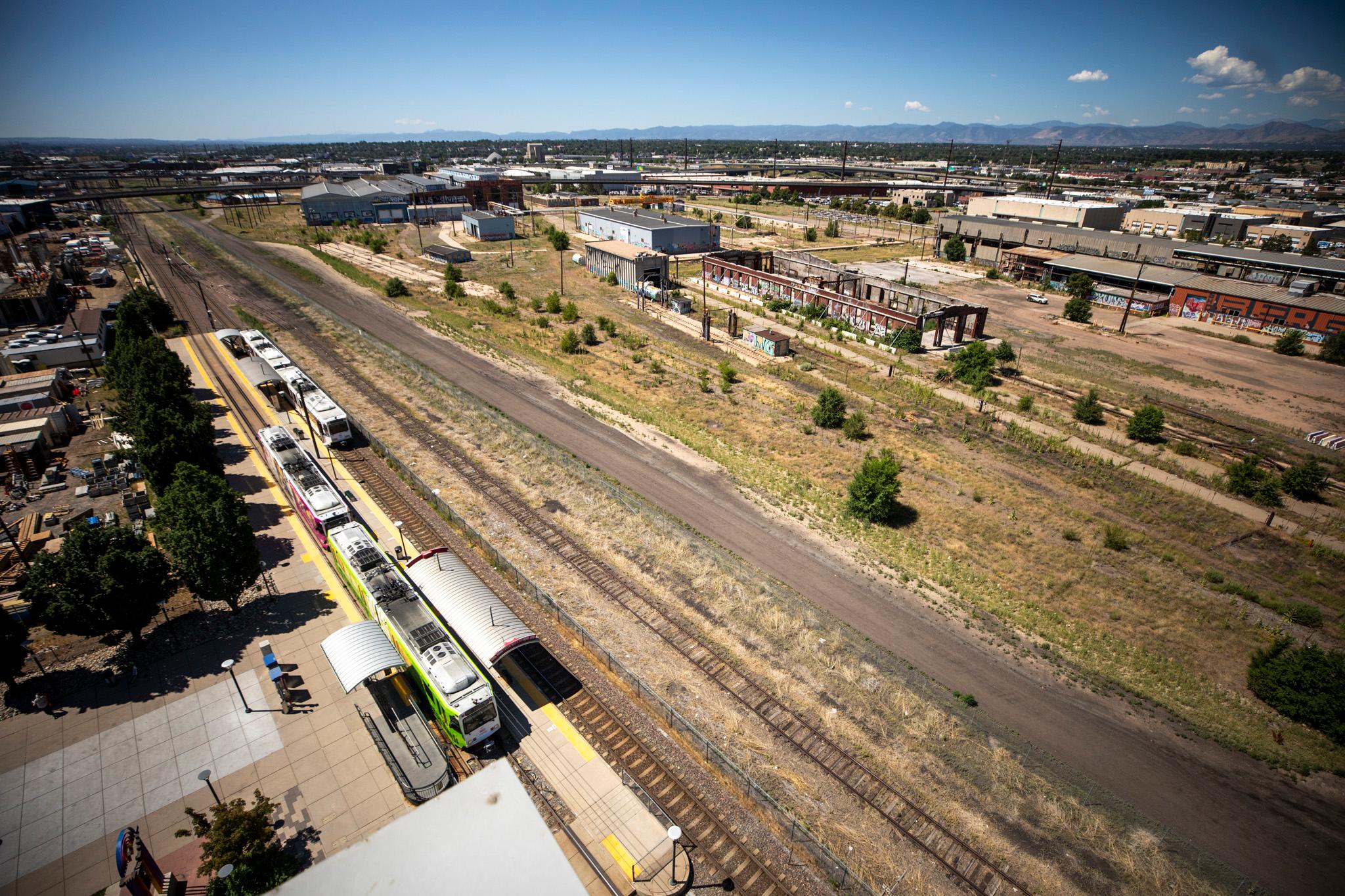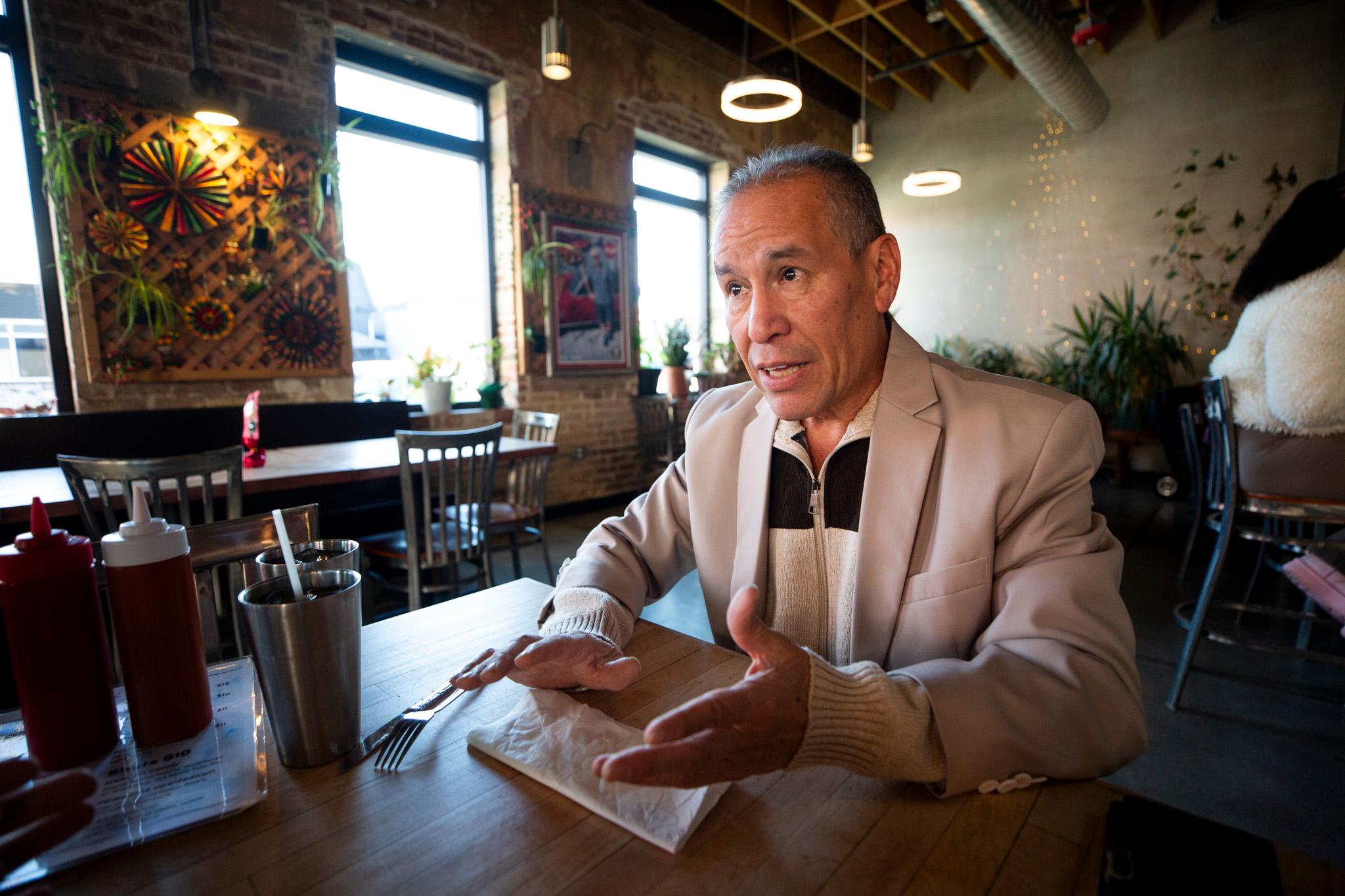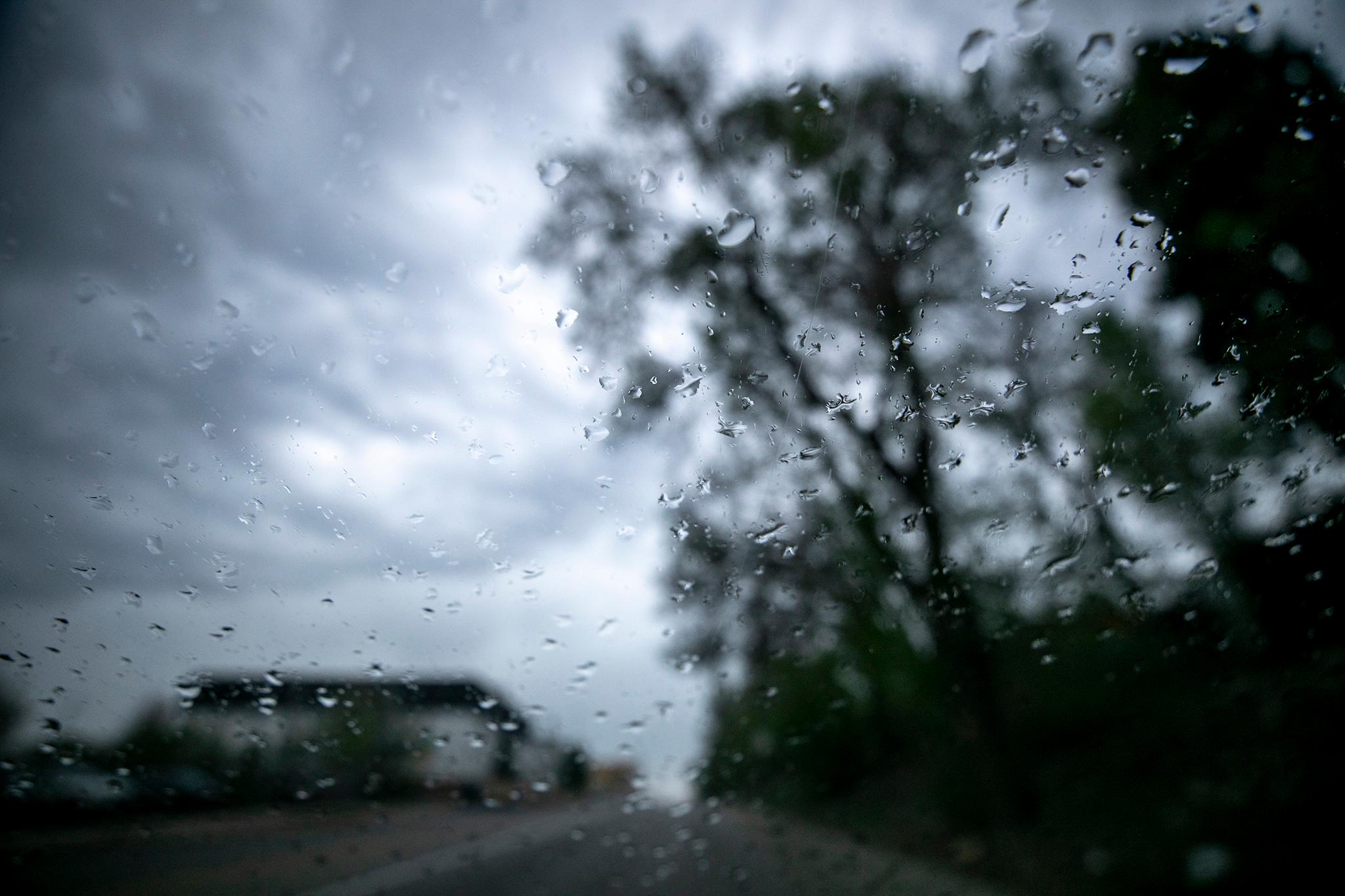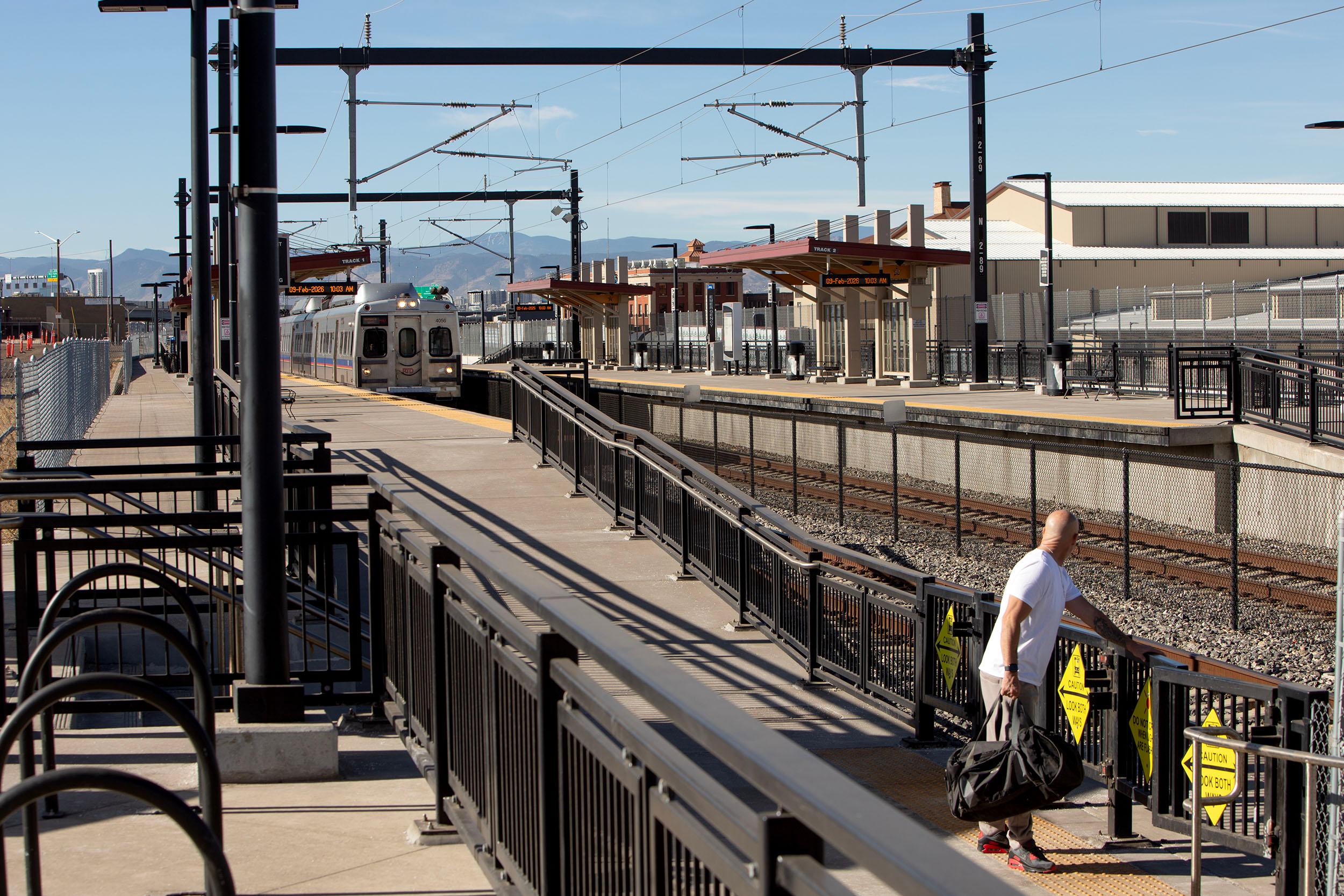There are two facts facing Denver and other cities throughout the state: The weather’s getting colder and there are fewer shelter beds for people experiencing homelessness.
One long-term shelter closed in Denver this year and another will close in March. More broadly, budget cuts and government decisions are threatening the Front Range’s homeless shelters. Loveland’s only overnight shelter is closing because its permit and funding expired. Colorado Springs’ shelter for homeless teens has already shuttered
It could add up to a more difficult, dangerous winter.
“We fully anticipate seeing cuts to homelessness services and housing resources in the budget. I think we're going to see budget cuts kind of across the board to all agencies,” said Cathy Alderman of the Colorado Coalition for the Homeless, one of the region’s biggest nonprofits.
“What we're mostly focused on is just how do we minimize the harmful impact of that,” Alderman said.
But despite funding issues, government officials in Denver and at least one neighboring county, Jeffco, say they’re committed to keeping sufficient emergency shelters available through the cold nights of winter.
“We will not turn anyone away,” wrote Jon Ewing, a spokesperson for Denver Mayor Mike Johnston.
Denver will offer its cold-weather shelters this year.
Emergency shelters, also known as severe weather shelters, are places like recreation centers or churches that are temporarily converted into shelters in cold weather.
The Colorado Coalition for the Homeless works with the city of Denver on cold-weather shelter plans. With budget issues hitting the city Cathy Alderman said they’re expecting to work with less this year in terms of resources and shelters.
But the city of Denver’s Department of Housing Stability (HOST), expects to keep providing the same level of service.
“While the 2026 budget has not yet been finalized, maintaining funding at a level that allows us to provide the same level of service this winter remains a top priority,” a spokesperson for HOST wrote in an email.
The city spent about $5.5 million on cold-weather shelters last year, activating its cold-weather shelters on 67 nights. In all, 400 different families stayed in the shelters.
This year, Denver will offer four cold-weather shelters for single adults:
- 375 S. Zuni St.
- 2601 W. 7th Ave.
- The Aspen Shelter, 4040 Quebec St.
- Stone Creek Shelter, 4595 Quebec St.
The Broadway Recreation Center and the Denver Coliseum also may be converted into emergency overflow shelters in severe weather.
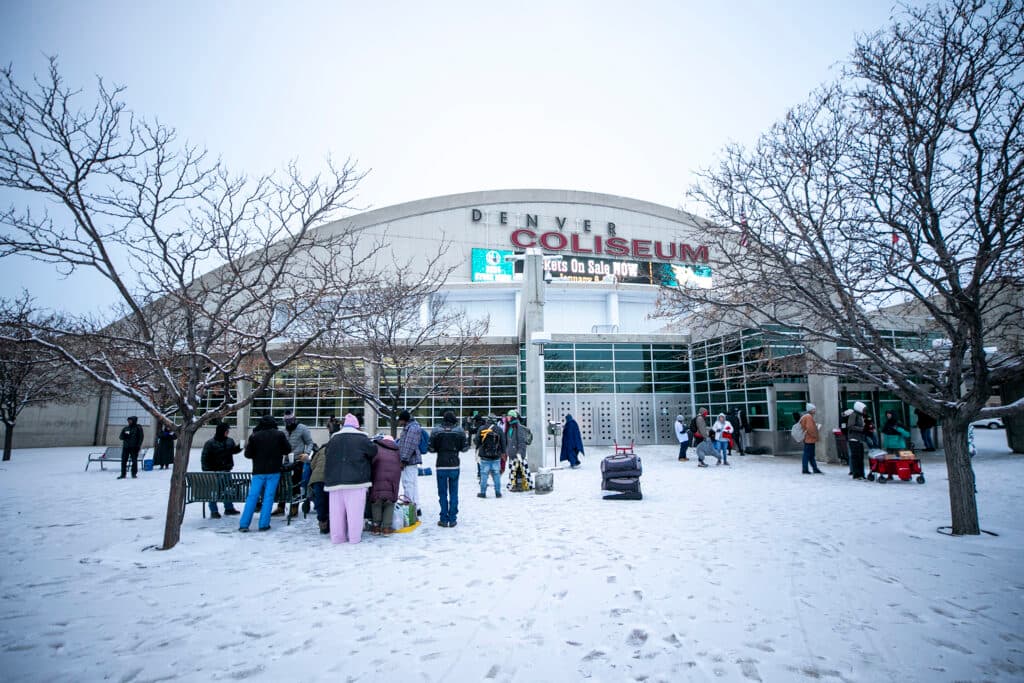
For families, HOST will continue to provide shelter in area motels, as well as congregate family shelters when motel rooms are full. Family resources are available through the 2-1-1 hotline.
But even as the cold-weather shelters reopen, Denver is set to close some longer-term shelters.
The city is ending its lease at the Radisson hotel in Globeville, where it’s offered 220 hotel rooms as temporary housing since 2023. In March, it will shut down the former Comfort Inn shelter on Quebec Street. (The Monroe Village tiny-home community also will close in June.)
The city has promised to help residents of those sites find housing, but the changes will result in fewer shelter spaces.
Alderman said she doesn’t blame Mayor Mike Johnston for budget shortfalls.
“I have really applauded the mayor's office for standing up these non-congregate shelters and giving people kind of a safe place to land while they work on what is often a longer-term process of finding housing,” Alderman said.
But the closing of shelters is still cause for worry from her perspective.
“I am concerned that we may not have enough spaces for people experiencing homelessness to stay safely overnight or week over week,” she said. “And that folks might find themselves back on the streets and we might see an increase in unsheltered homelessness.”
The nonprofit plans to keep helping people get shelter and resources, including by offering survival kits with blankets, socks and other supplies.
HOST said winter homelessness is a statewide problem that requires cities to work together. About a fifth of the visitors to Denver’s cold-weather shelters came from other counties, according to HOST.
“Ultimately, it’s going to take all of us—cities, counties, and community partners—working together to make sure no one is left out in the cold during severe weather this winter,” an agency spokesperson wrote in an email.
Jeffco is offering winter shelter this year.
Six cities in Jefferson County are working together this winter to provide housing and resources for people experiencing homelessness.
Each city is providing shelter and other support to be shared among the group.
The new program is meant to replace previous cold-weather shelters.
“Jefferson County has limited sheltering resources,” said Kelly Wrenick, the regional homelessness coordinator for Jeffco. “So we knew there was going to be a larger gap that we needed to fill.”
According to Jeffco Human Services, the county saw a 27 percent jump in homelessness last year, describing it as the biggest jump in the metro. Jeffco also says its unsheltered population has more than doubled since 2022.
The coalition of Jefferson County, Arvada, Edgewater, Golden, Lakewood, Westminster and Wheat Ridge agreed last spring to pool $2 million and create a unified emergency system through an intergovernmental agreement (IGA).
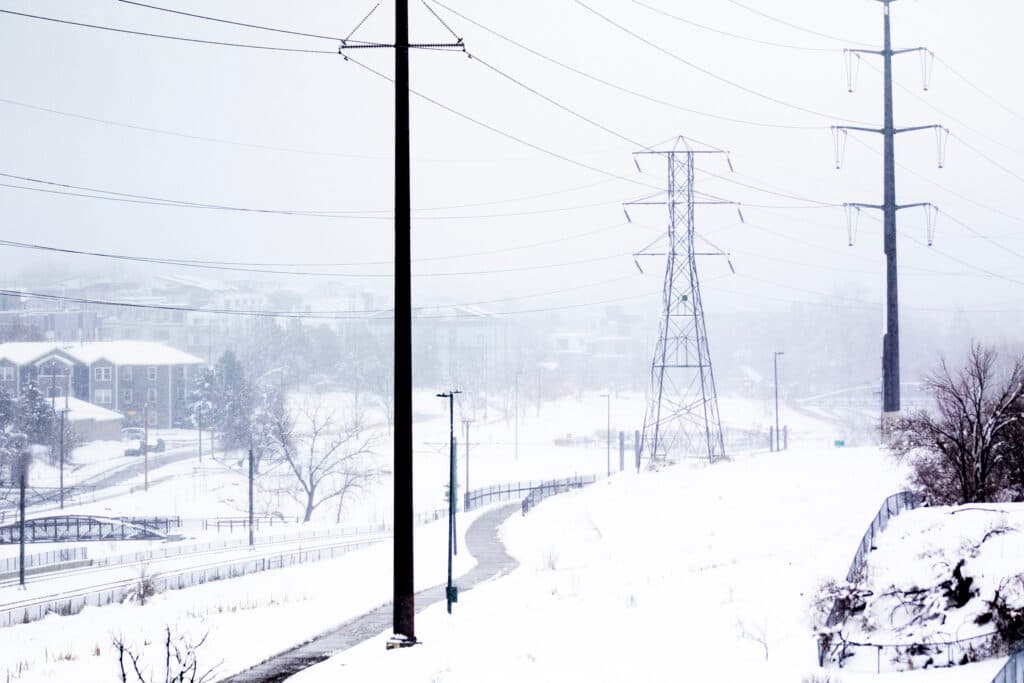
“We went into this IGA recognizing that we needed a solution very quickly. I don't think any of us are under the assumption that this is … a long-term solution for severe weather,” Wrenick said. “It's not. But we know that there was urgency to get something for this season in place.”
The $2 million is going toward renovations of cold-weather shelters throughout the region. The unified emergency system officially started on Oct. 1.
Work on the system started last year. One of the first steps was when the county health department took charge of sending weather alerts. Now, the IGA is building off of that, to respond to the alerts.
When it’s 32 degrees or lower, the county will issue a severe weather alert, which becomes an “extreme” advisory under 10 degrees. The cities will respond by opening shelters or offering other help.
Wrenrick said that having each city under the same weather advisory will help them be on the same page and provide the same resources.
“Jefferson County is made up of so many different jurisdictions,” Wrenick said. “One of the things that we wanted to achieve was that we, as a county, were going to have this universal threshold instead of each city having a different one. ”
The agreement will be effective for five years, according to Wrenick, though she admits there are better and more permanent solutions out there.
“Because we have that response ready to go, we can now focus and be more intentional about funding for real solutions longer term,” Wrenick said. “I think there's better investments that we can make longer term.”

